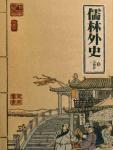China's vernacular novels, since the publication of "Water Margin" and other immortal masterpieces, have had a great influence on intellectuals and citizens. They use novels to lay out history, show heroes, talents and beauties, and become the second generation of Ming and Qing Dynasties. A common cultural phenomenon, the status of the novelist has thus been established.However, except for a few works of later generations that can keep pace with "Water Margin" and "Three Kingdoms", most of them have no satisfactory achievements in reflecting the depth of society or in portraying characters.It was not until Kang and Qian in the Qing Dynasty that these two works with epoch-making significance in the history of novels appeared.The brushwork is aimed at the feudal rich and powerful families; while the sharp edge is directed at the society,-writing about scholars, celebrities, and ordinary people, and it is objective and realistic, which is rare in Chinese novels.
The author is Wu Jingzi, a celebrity during the Kang and Qian years.Wu Jingzi (1701-1754), named Minxuan, named Limin, later known as Wenmu Laoren, was born in Quanjiao, Anhui.He was born in a family of prominent eunuchs in the past dynasties. He was a scholar at the age of eighteen. In the first year of Qianlong (1735), the governor of Anhui recommended Ying to be a erudite poet.In addition to his works in his life, there is also "Wenmu Shanfang Collection".What is shown is what Wu Jingzi personally experienced and heard, and it also expresses his noble sentiments of valuing the source of writing and despising fame and wealth.
It is a satirical novel and a living map of society.As the retired scholar Xingyuan said, it imitates the human feelings of the world, just like casting a tripod like an object, full of ghosts and monsters, and it is fully displayed in scale;When writing about gentlemen, it’s like seeing the Taoist appearance, like hearing aphorisms; when writing about villains, you can peek into their innermost beings, describe their voices, and the pen is enough to reach what can’t be reached by drawing.The comment on the printed edition of Wo Nao Thatched Cottage said: "Be careful not to read it. After reading it, you will feel that there is nothing wrong with daily entertainment." It can be seen from this that it vividly reflects the society with vivid pen and ink.Because of this, textual research scholars have compared the characters in the book one by one with real people and real events in history, and deduced the artistic prototype of the characters in the book.There are also people who go to the teahouse to experience the reality, which is called "review".All of this fully illustrates the success and greatness of the Communist Party of China.
Because of Wu Jingzi's profound literary accomplishment and rich social experience, he was able to write about that era thoroughly.He refined the folk spoken language, and wrote about the decadence and darkness of imperial examinations, the vulgarity and ridiculousness of corrupt scholars and fake celebrities, and the meanness and contempt of corrupt officials, all of which are just right. In bad fun.In terms of artistic structure, it has no characters that run through to the end, but unfolds in stages, just as Mr. Lu Xun said, "It's like collecting all kinds of brocade and combining them into a post. Although it is not huge, it is sometimes rare."This system had a great influence on the novels in the late Qing Dynasty, such as ", ", etc., all imitated.
The earliest surviving block edition is the eighth year of Jiaqing (1803) published by Woxian Thatched Cottage.Since then, there have been Qingwangpu Lige editions, Yigutang editions, Suzhou Qunyuzhai editions, and Shenbaoguan printed editions, etc.This typesetting is based on the Woguan Thatched Cottage version, and some typos have been corrected based on other versions.

Scholars
敬梓作
Classics
Category- 1970-01-01Published
-
279035
Completed
© www.3gbook.com
Press "Left Key ←" to return to the previous chapter; Press "Right Key →" to enter the next chapter; Press "Space Bar" to scroll down.
